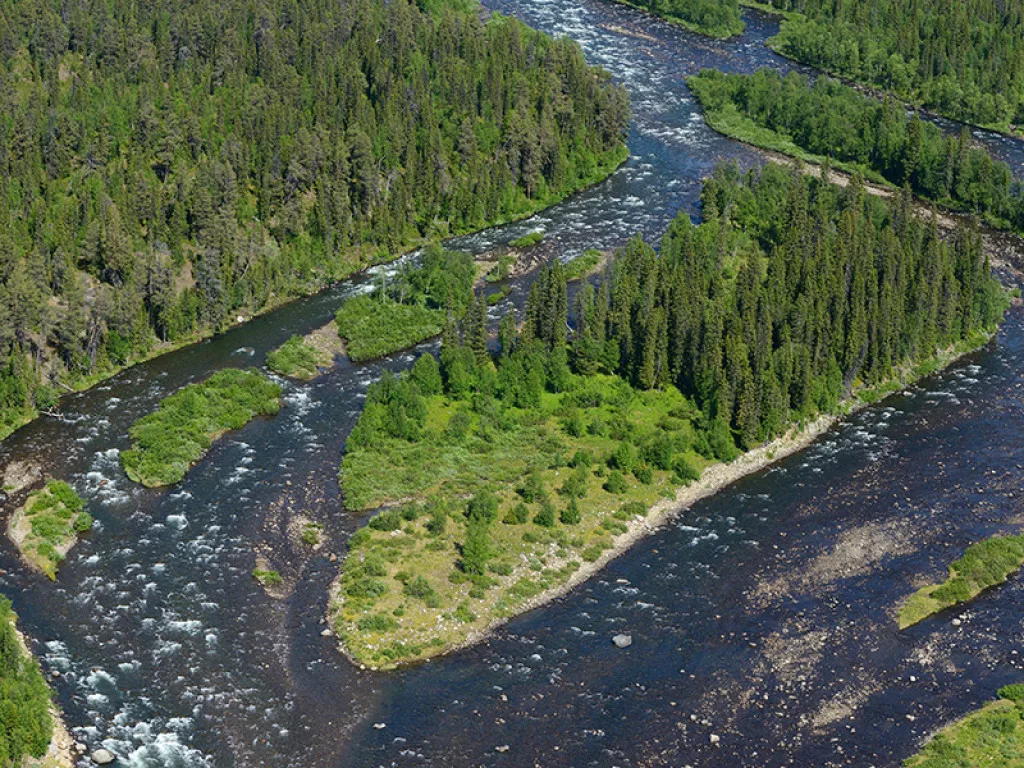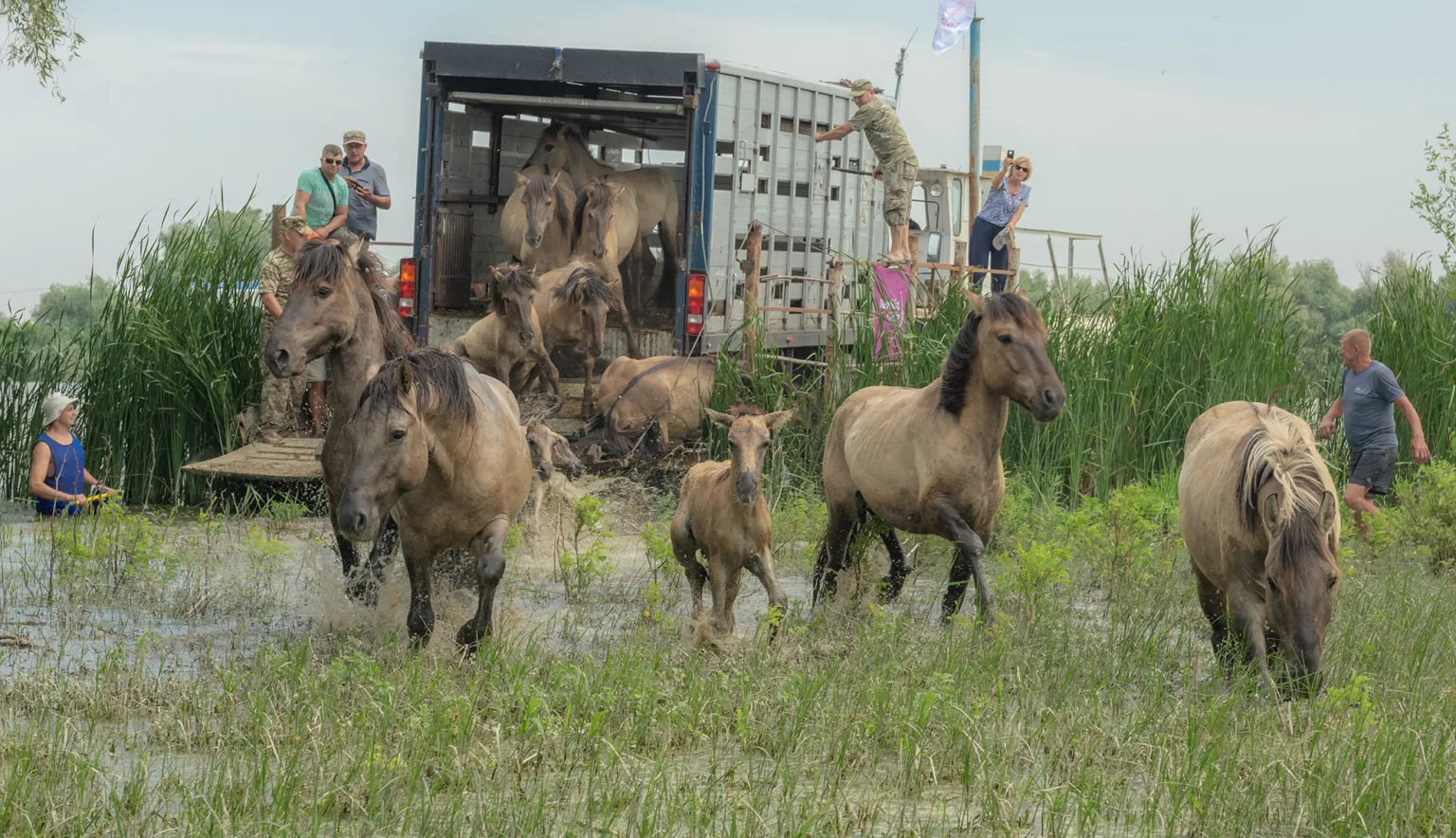Ahead of World Rewilding Day 2023, we speak with Frans Schepers, co-Founder and Executive Director of Rewilding Europe to showcase the organisation breathing new life into landscapes.
A WALK ON THE WILD SIDE
We as Europeans have mostly grown up in cultivated places and cultural landscapes, living with this belief that we need to manage, and control nature.
“This couldn’t be further from the truth, and we see a huge opportunity now, thanks to people’s growing awareness, to recover nature at scale. That’s the beauty of nature – if you allow it the space to recover, it bounces back big time.”
Pursuing a mission to breathe new life into the continent’s landscapes, the opening words of Frans Schepers encapsulate the visionary ethos behind the non-profit organisation, Rewilding Europe.
As both co-Founder and Executive Director, Schepers recalls the initiative’s inception in 2011, born from the desire to start something “big, bold and ambitious” and to champion a paradigm shift in the way nature is perceived and managed across Europe.
“We realised that we are just suppressing nature all the time, and a shift in our thinking is so important because that way, policymakers, decision makers and European inhabitants can collectively change the narrative surrounding nature,” he says.
“We need to look at nature as less of a victim. It shouldn’t be seen as some sort of sick child, but rather a strong force that can help us address some of the major problems we are facing – whether drought, flooding, disease, or fires – nature can offer solutions,” Schepers continues.
The past decade has witnessed a major evolution in the trends that originally fostered the birth of Rewilding Europe and the public awareness surrounding such matters – namely rural de-population and ageing demographics that both contribute to land abandonment, and the increasingly prominent extinction crisis.
These factors, combined with growing European policy showcasing a concern for wilderness within nature, various species re-introduction schemes and the demand for the great outdoors exacerbated by the restrictions of the COVID-19 pandemic, have merged to create a dynamic crucible of historic opportunity.
“There is a world of ‘comebacks’ taking place across Europe where iconic species are returning, whether large carnivores, mammals, or birds, whose future didn’t look so bright not that long ago. The resilience and the power of nature is a fantastic force to work with because it’s extremely rewarding,” he shares.
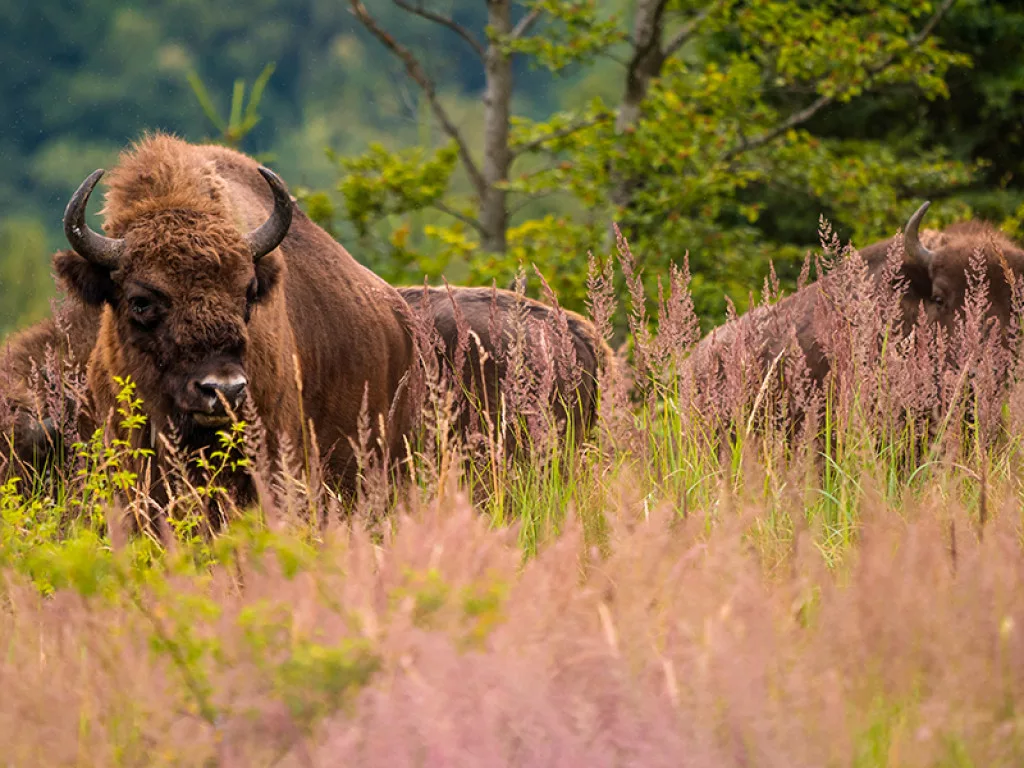
BEYOND CONSERVATION
Rewilding as a term is a relatively recent introduction to the cultural lexicon, with the verb itself only being added to the Oxford English Dictionary in 2010. The definition behind the phenomenon has many varying interpretations, but for Rewilding Europe, its essence is linked to the restoration of ecological integrity.
“Rewilding is all over Europe now and there are so many ways to define the term,” affirms Schepers. “We have tried to avoid strict scientific definitions, since it is a wider concept that can vary depending on geographical context. For us, rewilding means restoring the functionality of ecosystems on a large scale. It’s not about creating a wilderness that excludes people, or bringing back wildlife, it’s about restoring natural processes.”
To date, Rewilding Europe counts 10 different landscapes within its footprint where initiatives are underway at scale to restore nature’s functionality. This could be through the reintroduction of species, the removal of dams, the introduction of corridors, or by simply taking a step back, bringing down the fences, and letting nature take its course.
These include the Iberian Highlands (Spain), Swedish Lapland, the Velebit Mountains (Croatia), the Oder Delta (Germany, Poland), the Central Apennines (Italy) and the Affric Highlands (Scotland), to name just a few. In each location, Rewilding Europe sets wildlife and community reinvigoration in motion by partnering with landowners and local teams.
“We are implementing rewilding on a landscape scale in these places, driven by local teams who have their own leaders and ownership of these initiatives, working together as one European team led by one mission,” Schepers tells us.
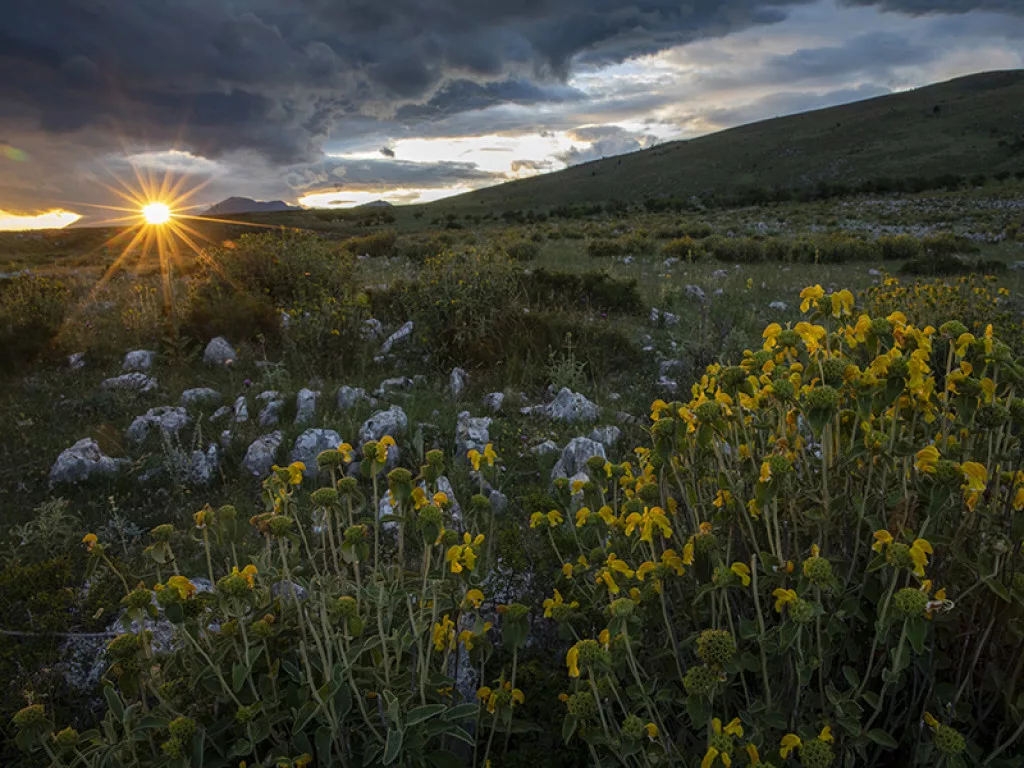
GOING FOR SCALE
Although rewilding requires a significant amount of verbal and conceptual work in driving regulation change and advocating for a widespread shift in mindset, Schepers highlights the practical, pioneering approach that underlines Rewilding Europe.
“We are very much a practitioner’s organisation that wants to pioneer learning and do things on the ground first and work from there. It’s very much an implementation-first approach based on a bigger vision, rather than a ‘top down’ big idea,” he says.
One critical element in driving this implementation is the European Wildlife Comeback Fund, a scheme that was launched by Rewilding Europe last year off the back of an extensive study and aims to scale up the reintroduction of keystone species and population reinforcement.
“We are just at the start of this fund being introduced, but there’s already so much more potential,” Schepers observes.
Expediting rewilding at scale remains one of the organisation’s key priorities, yet this is just one step on a journey with a long way to go. Indeed, funding is a crucial element to any rewilding initiative, and for Schepers, this is one particular area that calls for progress.
“Rewilding is primarily financed with public money from the philanthropic sector, but if we really want to scale up nature recovery in Europe, we need help from the private sector,” he says. “We need more corporates and companies to become engaged, and although that runs the risk of greenwashing, there are many businesses that have the right DNA and match our approach.
“It is urgent for us to meet interest from investors and financial institutions with the right business models for them to be able to invest – whether that’s in forestry, water management, energy production or agriculture,” he continues.
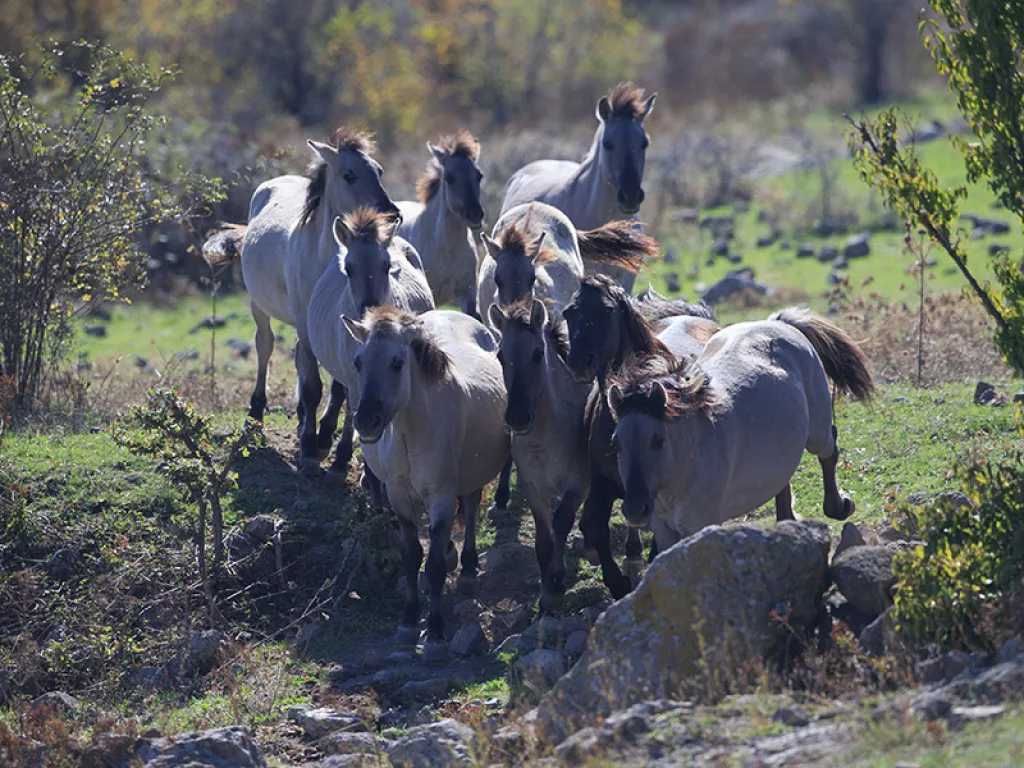
CHANGING THE NARRATIVE
Aside from the practical need for investment, Rewilding Europe calls for a new narrative, one that reflects the environments it revitalises with an optimistic vision where nature and people can flourish hand in hand. This involves framing a future that is both nature positive and climate resilient in a more hopeful light.
“Every day we see these doom and gloom stories that make people feel miserable and leaves them questioning what they can do as individuals,” observes Schepers. “I think it’s important to change this narrative of anxiety, because it demotivates people. We need to move away from the anxiety narrative, towards what we call the empowerment narrative.”
By so doing, individuals, and particularly the younger generation, can find empowerment in taking action, unleashing the power of nature on any scale.
“Apart from being careful with your footprint as a human being, you can also contribute in a nature positive way by helping its restoration. We see huge interest from younger generations and early career professionals on this topic because it provides an open perspective which is so dearly needed,” he surmises.
Our conversation with Schepers takes place just days before the annual World Rewilding Day – an initiative conceived by the Global Rewilding Alliance in 2020 – due to take place on the 20th March. This year, the event will be led by the theme of ‘Hope’.
An alliance consolidating over 130 organisations across the globe, the event is a celebration of rewilding work whilst drawing attention to its ongoing initiatives and achievements, channelling the key message of putting hope and empowerment in driving nature positive change in everyone’s hands.
Although scale is essential for Rewilding Europe, Schepers draws to a close by foregrounding the simple space of your own back garden as a small, but rewarding microcosm that can highlight the power of rewilding.
“Even by taking your own backyard and getting rid of the concrete, creating a flower garden or installing a pond, you can sit back and see things start to happen. There is potential to be found in so many places.”
